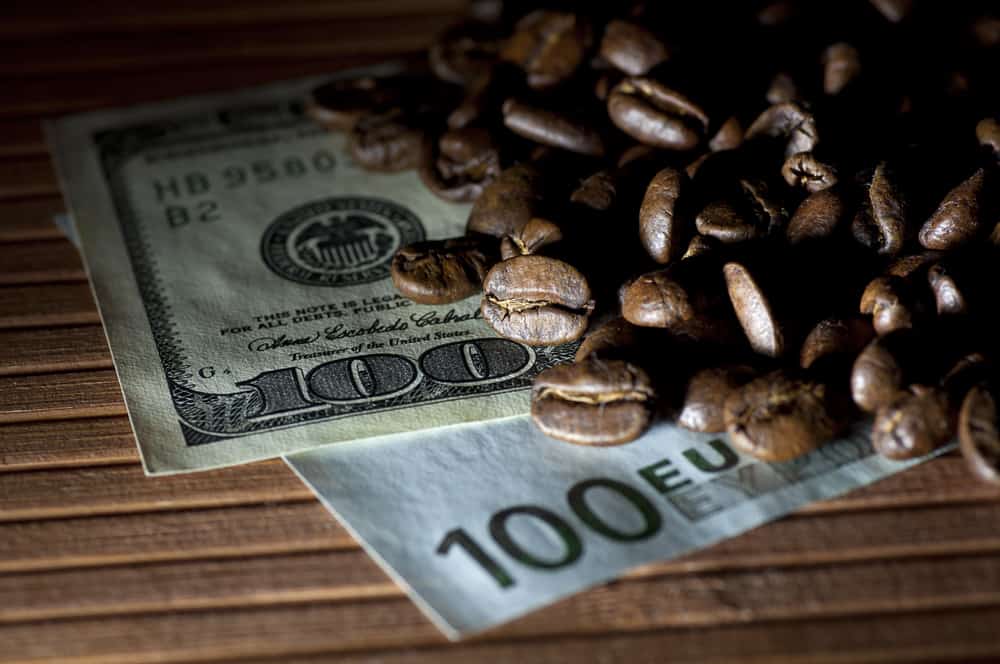Blog
The International Coffee Price Crisis
Coffee Price Crisis – 3.5 minute read
A lot of people around the world with different cultures and traditions unify by one common thing, their love for coffee. Coffee is prevalent, especially amongst the working-class population that works long hours and needs caffeine to get through the day.
Most of us probably perk up in the morning with a daily morning cup of coffee. However, this popular industry is facing an international crisis when it comes to coffee prices. What is the reason behind this issue, and what actions are being taken to solve the problem?
The decrement of coffee bean prices in Brazil
The Brazilian currency is decreasing in value very quickly, and the ripple effects of that are starting to be evident in other industries. One of the sectors taking a hit is the coffee beans and coffee industry. As Brazil is the world leader in growing coffee beans, the effects of this country’s economic and political instability are reflecting on coffee globally.
What are Brazilian farmers growing to get some cash flow?
As a result of this problem, Brazilian farmers have to look at other avenues for cash flow. Some farmers have turned to the exporting of cashew nut, corn, and soy farming to improve cash influx. The industry of exportation of other fruits and nuts is also very lucrative.
What measures are being taken to tackle this problem?
Brazil is trying its best to solve this issue, but local farmers can not do not much at this point. However, there is a new program that developed for advocates to address this issue: the Sustainable Coffee Program aims to help farmers get more profit for their coffee.
The decline of coffee bean prices in Colombia
The problem with coffee prices plaguing Colombia is the oversupply of coffee that has exponentially brought down the price of coffee. Families that farm coffee beans in small farms are bearing the brunt of this problem, earning only modest profits or even sell at their loss due to this price issue.
What are Colombian farmers growing to get some cash flow?
Some Colombian farmers have opted to grow sugarcane to substitute their income to make ends meet and feed their families. However, the money doesn’t go far because some of the farmers are still working to pay off loans for their farms.
What measures are being taken by Colombia to tackle this issue?
The farmers have decided to take it to the streets and voice their concerns via civil protest. There are ongoing negotiations with the government with the plea of assistance through the stabilization fund and other government subsidies. The government has declared $80 million to help boost farmers, but the farmers still think it is not enough.
Joining forces to fight this
The two countries, Brazil and Colombia, are working towards creating solutions to this problem by forming an alliance. There is also a forum, the World Coffee Producers Forum that has recently developed between both these countries to layout solutions to this economically crippling issue.
The devaluation of coffee beans in Ghana
The problems Ghana faces are unique from those of the South American countries discussed above. The devaluation of coffee beans in Ghana is caused by failing to make an agreement with Ivory Coast on the price for coffee beans. This led to abandoned fields and widespread poverty. This industry has also been tainted by child labor, slavery, and forced labor.
What alternative crops are Ghanaian farmers growing?
Ghana is pursuing alternative farming in mainly root crops like yams and other like vegetables. Although not a market as large as the coffee bean industry, it aids the local community in supporting their families.
What steps is Ghana taking to sort this issue out?
Ghana and Ivory Coast have been at the table negotiating about setting the base price for their coffee beans. Meetings conducted with all the stakeholders involved have not reaped good results. Major buyers left the table saying the policies they want to implement aren’t clear, and as a result, no agreement was reached.
The devaluation of coffee beans in Ivory Coast
The reason for the devaluation of coffee beans is the same as that of Ghana. The two countries and their major coffee bean buyers’ failure to agree on a base price of coffee is having rippling effects for many.
What alternative crops are farmers from Ivory Coast growing?
An alternative method of income in agriculture that Ivory Coast has pursued is the timber industry. Other than that, not much farming or agricultural activity happens in the Ivory Coast other than subsistence farming.
What steps is Ivory Coast taking to sort this issue out?
As the issue facing Ghana is the same one facing Ivory Coast, the latter has already been engaged in meetings negotiating with coffee bean buyers. Just like the efforts of Ghana, these efforts have been unsuccessful thus far.
Setting a base price for Ghana and Ivory Coast
It will be difficult for Ghana and Ivory Coast to set a base price for their Coffee Beans. If buyers don’t agree with their policies and methods, their coffee beans will not have any value as they’ll have no market. Hopefully, this will change soon, and these countries and their potential buyers will reach an agreement.
Conclusion
Although the price crisis doesn’t affect coffee prices on the grocery store shelf, leaving consumers unaffected, it sure does cripple coffee beans growers. In the long run, coffee beans growers might end up pulling out of this market, resulting in less competition, which could mean higher prices for consumers.
Hopefully, the joint efforts and negotiations will yield good results and help combat this problem affecting the coffee bean market. Next time you have your daily morning cup of coffee, you will be better informed about the issues growers faced for that cup of joe.





